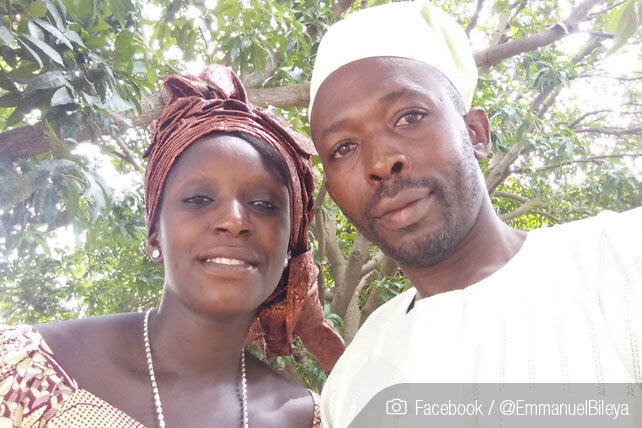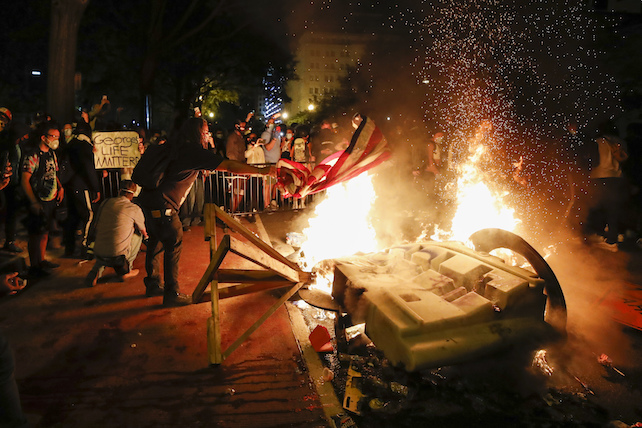“Without fire, nothing.” I often say this to my students in the context of motivation for ministry. I have felt this fire for over four decades. It has gotten me through many rejections, depressions, and my own foolishness. Fire in my bones comes from the prophet Jeremiah, a man with a rather miserable ministry of declaring God’s judgment. He was “the weeping prophet” and was often in trouble with the rebellious people of Israel. Yet through it all, Jeremiah wrote:
You deceived me, Lord, and I was deceived;
you overpowered me and prevailed.
I am ridiculed all day long;
everyone mocks me.
8 Whenever I speak, I cry out
proclaiming violence and destruction.
So the word of the Lord has brought me
insult and reproach all day long.
9 But if I say, “I will not mention his word
or speak anymore in his name,”
his word is in my heart like a fire,
a fire shut up in my bones.
I am weary of holding it in;
indeed, I cannot (Jeremiah 20:7-9).
The observant reader will note that this prophet was angry with the one who made him a prophet. He would rather do something else, since the cost is so high and painful. But, indeed, he cannot! I have sometimes decided to serve God even when I did not like him very much. He is my Lord, whatever my feelings may be. I’m grateful that I have not felt this way for some time now.
Similarly, when Paul entered Athens, he was upset at their idolatry. “While Paul was waiting for them in Athens, he was greatly distressed to see that the city was full of idols” (Acts 17:16). Athens was not at the height of her glory, but was still a center of philosophy and learning. It was the home of Zeno, Socrates, Plato, and Aristotle as well as being a center of culture given its architecture, poetry, and more. Yet Paul was more exercised by its idolatry than by its celebrated achievements. As a loyal Jew, he knows that God commanded his people not have no other God besides himself and to not make idols (Exodus 20:4-6; see also Romans 1:18-32; Isaiah 42:8).
But instead of throwing a theological tantrum, Paul channels the first in his bones into courageous and brilliant witness. Luke tells us that because of his “distress,” Paul “reasoned in the synagogue with both Jews and God-fearing Greeks, as well as in the marketplace day by day with those who happened to be there” (Acts 17:17). He went on to give his classic apologetic address at Mars Hill, in which he continues to reason with his well-educated and philosophically-astute audience (Acts 17:22-34).
Many more examples of fire in my bones can be culled from Scripture. Instead of doing that, let me say that this divinely-authorized fire is never bombastic, arrogant, or mean-spirited, since that would mean grieving the Holy Spirit (see Galatians 5:13-26). Rather, the fire is a holy intensity to explain and promote the truth of the living God, come what may. Let me reflect on what this idea has meant in my life and ministry.
The fire is from God, not myself. I ask God to give it to me and to protect me from vainglory and self-promotion. As a writer, teacher, and preacher, I want to make a wide, deep, long and holy mark on the world. That cannot be done through the work of the flesh and the ways of this fallen world. I have long said that we should pray that our influence would never exceed our competence or our calling.
The fire burns even when all else is dark. At the worst times of my journey through my first wife’s dementia, I still yearned to see God’s truth shed abroad in people lives and in the world at large. Yes, the fire dwindled a bit at times, but it could not be put out. What else could I live for? After many defected from Jesus’ ministry, he asked Peter
“You do not want to leave too, do you?” Jesus asked the Twelve.
Simon Peter answered him, “Lord, to whom shall we go? You have the words of eternal life. We have come to believe and to know that you are the Holy One of God” (John 6:67-69).
During many years of hardship and fatigue, I would often intone this verse about myself from Ecclesiastes, “The grasshopper drags himself along” (Ecclesiastes 12:5), which is part of a poetic description of the trials of aging. But the grasshopper still had fire in his exoskeleton. Now, thank God, that is no longer my go-to verse; but the fire remains. I used to sign my letters to a good friend as “The Grasshopper” and he would address me as such. Now that I am experimenting with happiness, I’ve asked him to give up that appellation and I no longer use it myself. (See my essay at Christianity Today, “The Risk of Happiness.”)
The fire in my bones is a creative spark for ministry. Paul told the Romans: “It has always been my ambition to preach the gospel where Christ was not known, so that I would not be building on someone else’s foundation” (Romans 15:20). Yes, I teach at a seminary where many other Christians minister. I write for magazine for which many other Christians write. I preach at churches were many other Christians have preached. But I seek to bring Christianity places where it is rare or scares, such as in secular publications, in the secular classroom, and talking to those who may seek quite far from the gospel. Ecclesiastes has encouraged me in this.
Ship your grain across the sea;
after many days you may receive a return.
Invest in seven ventures, yes, in eight;
you do not know what disaster may come upon the land.
Sow your seed in the morning. . . .
and at evening let your hands not be idle,
for you do not know which will succeed,
whether this or that,
or whether both will do equally well (Ecclesiastes 11:3, 6).
What the text advises for finances, I apply to ministry ventures. I ask if I can speak at a Buddhist university. They ignore me (twice). I submit a creative article to a secular philosophy magazine. They say Yes! And so it goes, the first remaining constant in my ventures, however quixotic they sometimes seem. (See my article, “Casting Your Bread on the Waters” from The Christian Research Journal).
If you have no fire for the things of God, ask him for that fire. Jesus promised:
Ask and it will be given to you; seek and you will find; knock and the door will be opened to you. For everyone who asks receives; the one who seeks finds; and to the one who knocks, the door will be opened.
Which of you, if your son asks for bread, will give him a stone? Or if he asks for a fish, will give him a snake? If you, then, though you are evil, know how to give good gifts to your children, how much more will your Father in heaven give good gifts to those who ask him! So in everything, do to others what you would have them do to you, for this sums up the Law and the Prophets (Matthew 7:7-12).
One way to acquire the fire is to discern and emulate its works in others. Of course, the biblical characters of Jeremiah, Paul, and, of course, Jesus, will warm turn up the heat in our cool bones, but there are many exemplars down through history. I have found that the life and ministry of Francis Schaeffer (1912-84) to be exemplary. He had fire in his bones, but also tears in his eyes. It could write in The Great Evangelical Disaster that “truth demands confrontation,” but add “loving confrontation.” I recommend, Francis Schaeffer: An Authentic Life by Colin Duriez (Crossway, 2008).
Whatever it takes, find the fire—and you will never be the same. Nor will the world be the same.
This article about fire in my bones originally appeared here.












